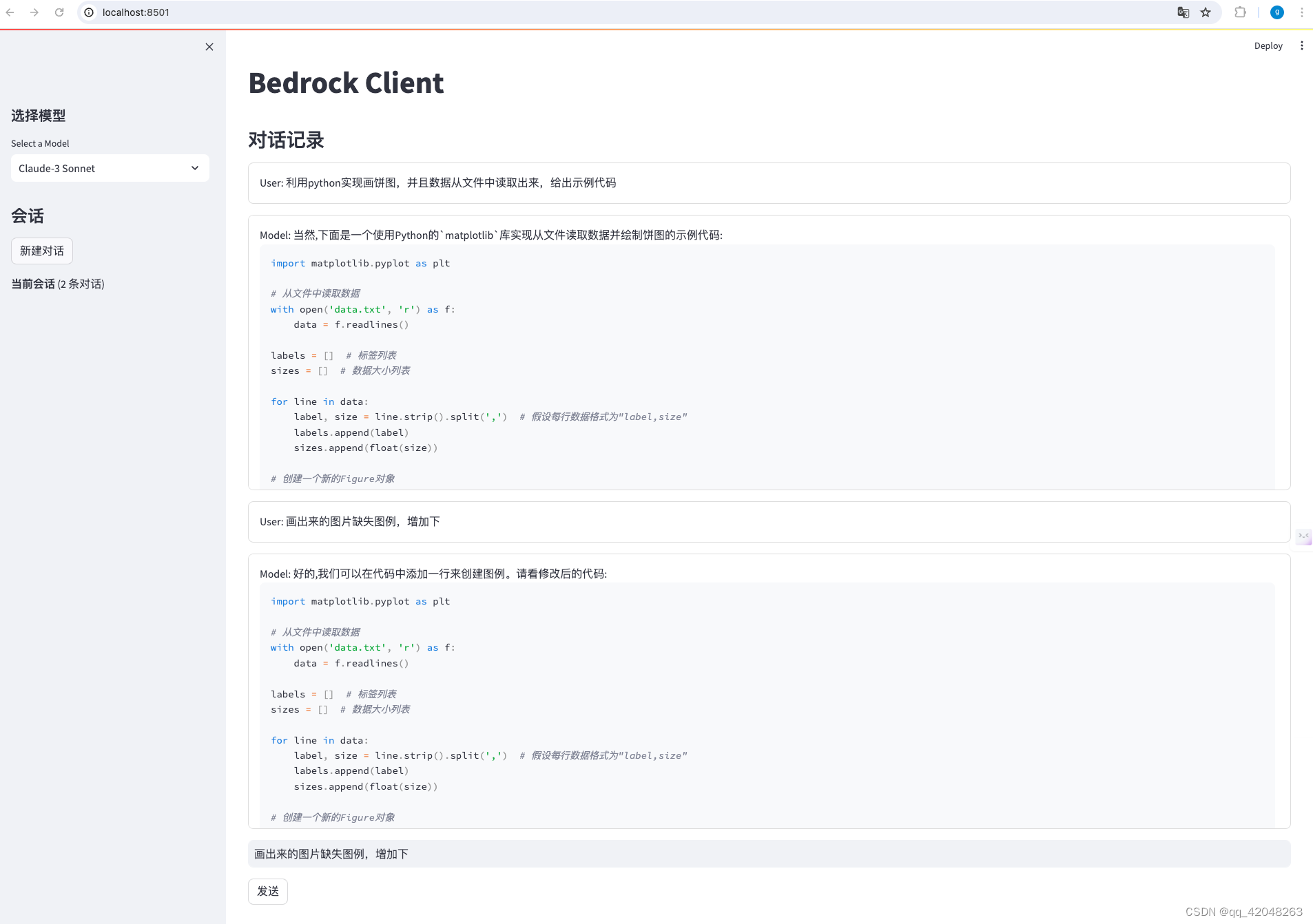
系列文章目录
以下几篇侧重点为JavaScript内容0.0
- JavaScript入门宝典:核心知识全攻略(上)
- JavaScript入门宝典:核心知识全攻略(下)
- Django框架中Ajax GET与POST请求的实战应用
- VSCode调试揭秘:Live Server助力完美测试Cookie与Session,远超“Open in Browser“!(writing…)`
文章目录
- 系列文章目录
- 前言
- 一、跨域
- 二、登录
- 1.前端html
- 2.后端逻辑
- 三、注册
- 1.前端html
- 2.后端逻辑
- 最后遇到的一个小问题:
前言
在本博客中,我们将通过登录注册两个实战案例,深入探讨如何在Django项目中使用Ajax进行网络请求以实现数据交互。同时,我们还将详细解析如何利用Cookie和Session来管理用户状态,确保用户信息的安全性和一致性。
一、跨域
跨域问题参考下面这篇文章:
跨域问题与Django解决方案:深入解析跨域原理、请求处理与CSRF防护
二、登录
1.前端html
<!DOCTYPE html>
<html lang="en">
<head>
<meta charset="UTF-8">
<meta name="viewport" content="width=device-width, initial-scale=1.0">
<title>Login</title>
<script src="./js/jquery-2.2.0.min.js"></script>
<script>
function fnLogin() {
var username_label = document.getElementById('username');
var password_label = document.getElementById('password');
var user = {
username: null,
password: null,
}
user.username = username_label.value;
user.password = password_label.value;
$.ajax({
url: "http://127.0.0.1:8000/app/login/",
type: "POST",
dataType: "json",
data: user,
xhrFields: { withCredentials: true }, //设置支持携带cookie
success: function (response) {
if (response.code == '200') {
alert(response.message)
window.location.href = 'exd8_news.html';
} else {
alert(response.message)
}
},
error: function () {
alert("请求失败!")
}, async: true
})
}
</script>
</head>
<body>
<input type="text" id="username" placeholder="请输入用户名:"><br>
<input type="text" id="password" placeholder="请输入密码:"><br>
<input type="button" value="Login" onclick="fnLogin();">
</body>
</html>
2.后端逻辑
# app/views.py
class LoginView(View):
def post(self,request):
username = request.POST.get('username')
password = request.POST.get('password')
try:
user = UserModel.objects.get(username=username)
if user.password == password:
request.session['userid'] = user.id #
print("-------------------")
print(request.session['userid'])
return JsonResponse({"message": "登录成功!", "code": "200"})
else:
return JsonResponse({"message": "密码错误!登录失败!", "code": "201"})
except Exception as e:
print(e)
return JsonResponse({"message": "用户不存在!登录失败!", "code": "202"})
三、注册
1.前端html
<!DOCTYPE html>
<html lang="en">
<head>
<meta charset="UTF-8">
<meta name="viewport" content="width=device-width, initial-scale=1.0">
<title>Register</title>
<script src="./js/jquery-2.2.0.min.js"></script>
<script>
function fnRegister() {
var username_label = document.getElementById('username');
var phone_label = document.getElementById('phone');
var password_label = document.getElementById('password');
var cpassword_label = document.getElementById('cpassword');
var user = {
username: null,
phone: null,
password: null,
cpassword: null,
}
user.username = username_label.value;
user.phone = phone_label.value;
user.password = password_label.value;
user.cpassword = cpassword_label.value;
$.ajax({
url: "http://127.0.0.1:8000/app/register/",
type: "POST",
dataType: "json",
data: user,
success: function (response) {
if (response.code == '200') {
alert(response.message + "跳转到登录页面!")
console.log(response);
window.location.href = 'login.html';
} else {
alert(response.message)
}
},
error: function () {
console.log("请求失败!!!");
}
})
}
</script>
</head>
<body>
用户名:<input type="text" id="username"><br>
手机号:<input type="text" id="phone"><br>
密码:<input type="password" id="password"><br>
确认密码:<input type="password" id="cpassword"><br>
<button onclick="fnRegister()">注册</button>
</body>
</html>
2.后端逻辑
# app/views.py
class RegisterView(View):
def post(self, request):
# 用户名username,手机号phone,密码password
# put delete
# postman 测试:
# 1.传参为raw格式时
# 2.传参为x-www-form-urlencoded时
print(request.POST)
print("-------------------")
print(request.body)
# -------------------------------------------------
# 1.传参为raw格式时
# 字符串转成字典 通过decode解码
# 使用put delete时:
# data = request.body.decode()
# print("data:" + data)
# # #***使用raw 传参数时***
# import json
# res_dict = json.loads(data)
# print("username:" + res_dict.get('username'))
#
# username = res_dict.get('username')
# password = res_dict.get('password')
# phone = res_dict.get('phone')
# cpassword = res_dict.get('cpassword')
# -----------------------------------------------------------------
# 2.传参为x-www-form-urlencoded时
username = request.POST.get('username')
password = request.POST.get('password')
phone = request.POST.get('phone')
cpassword = request.POST.get('cpassword')
import re
if re.match(r'^1[3-9]\d{9}$', phone):
try:
UserModel.objects.get(phone__exact=phone)
return JsonResponse({'message': '用户已存在,请登录'})
except:
# 两次密码是否一致
if password == cpassword:
user = UserModel()
user.name = username
user.password = password
user.phone = phone
user.save()
# 取决于逻辑
# request.session['']
return JsonResponse({'message': '注册成功'})
else:
return JsonResponse({'message': '两次输入密码不一致'})
else:
return JsonResponse({'message': '手机号不满足规则'})
1.使用postman测试POST传参为raw格式时:
控制台输出:
2.使用postman测试POST传参为x-www-form-urlencoded时:
控制台输出:
最后遇到的一个小问题:
使用vscode测试前端页面时使用open in browser和open with live server,可能给会导致不同的结果,详情见下篇文章:VSCode调试揭秘:Live Server助力完美测试Cookie与Session,远超“Open in Browser“!(writing...)

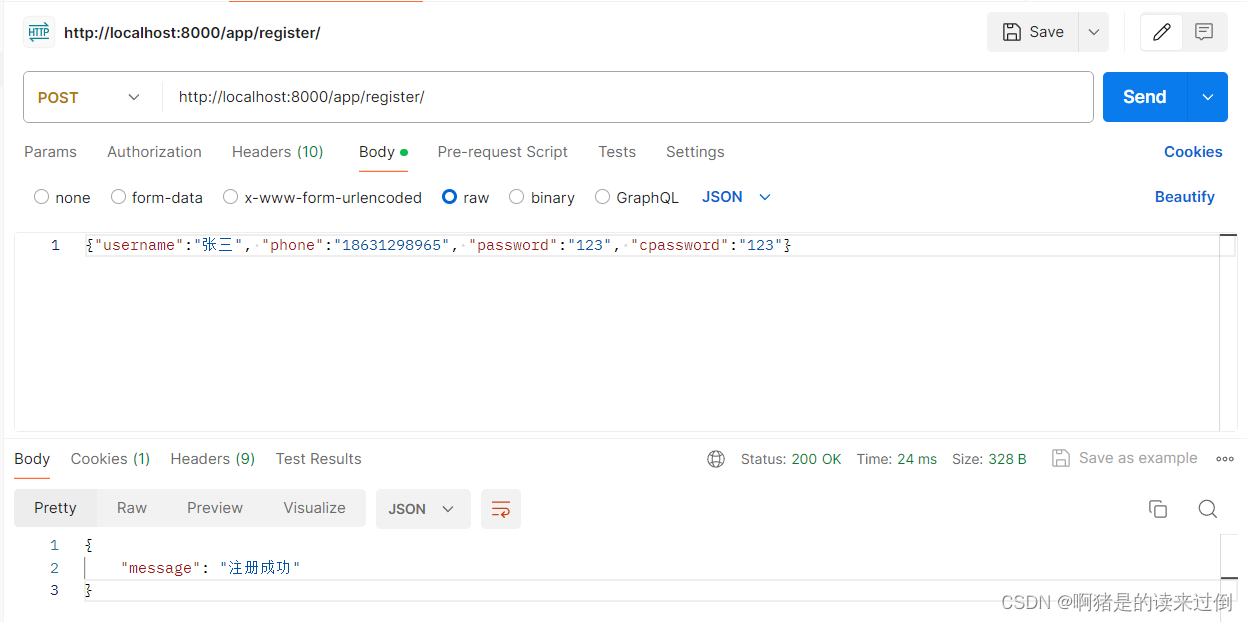

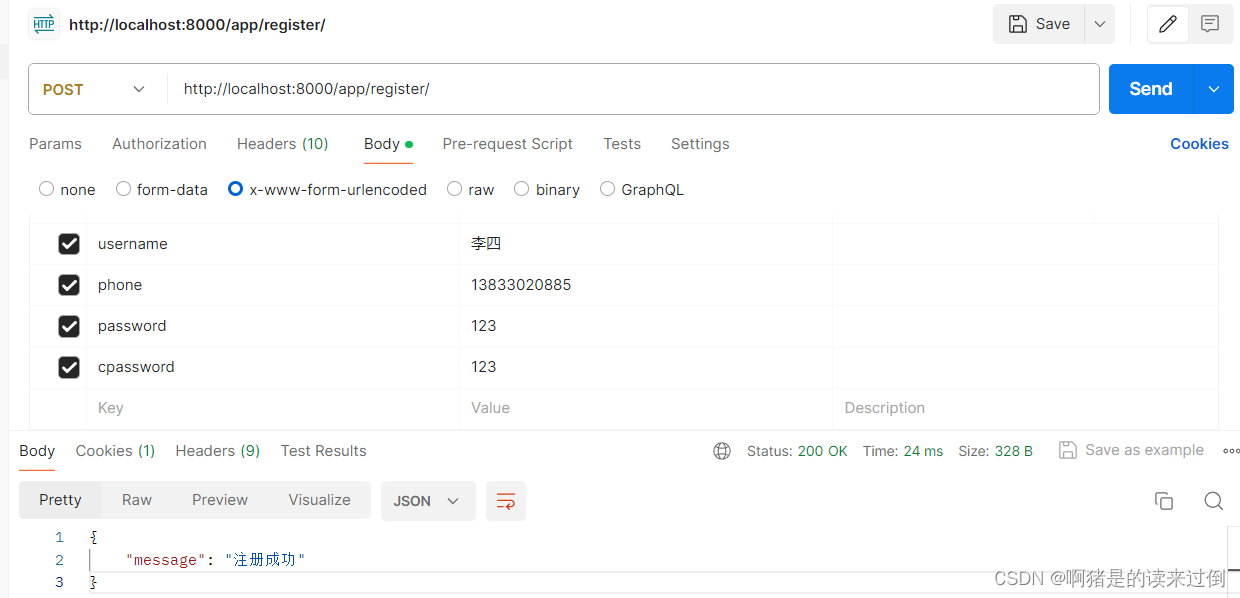
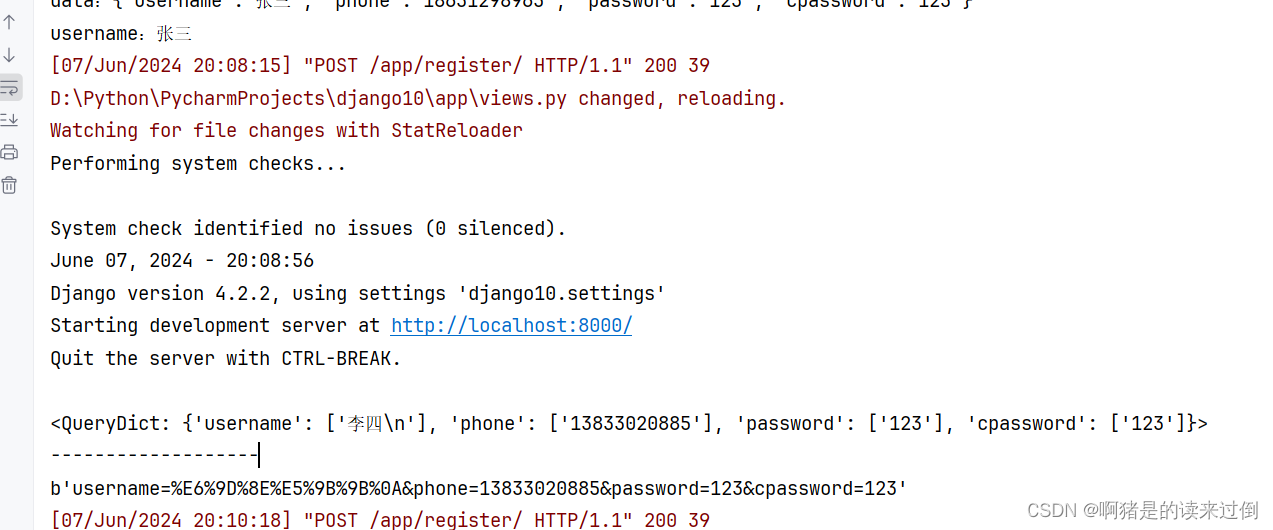


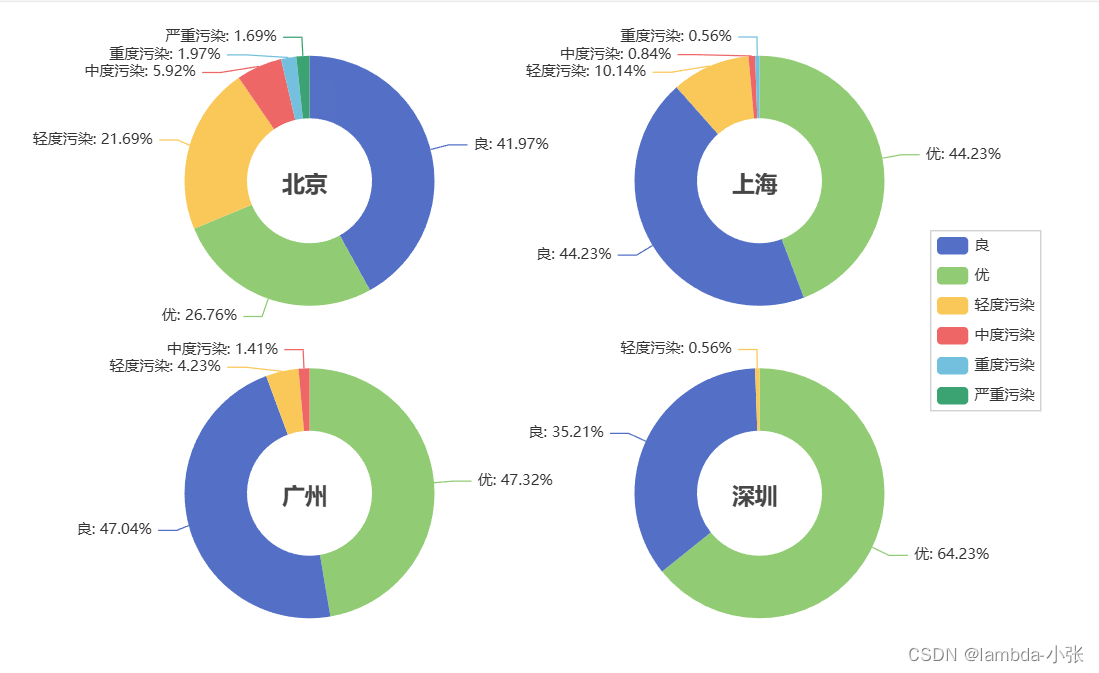

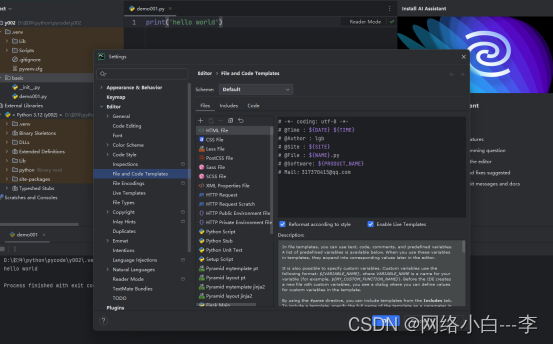



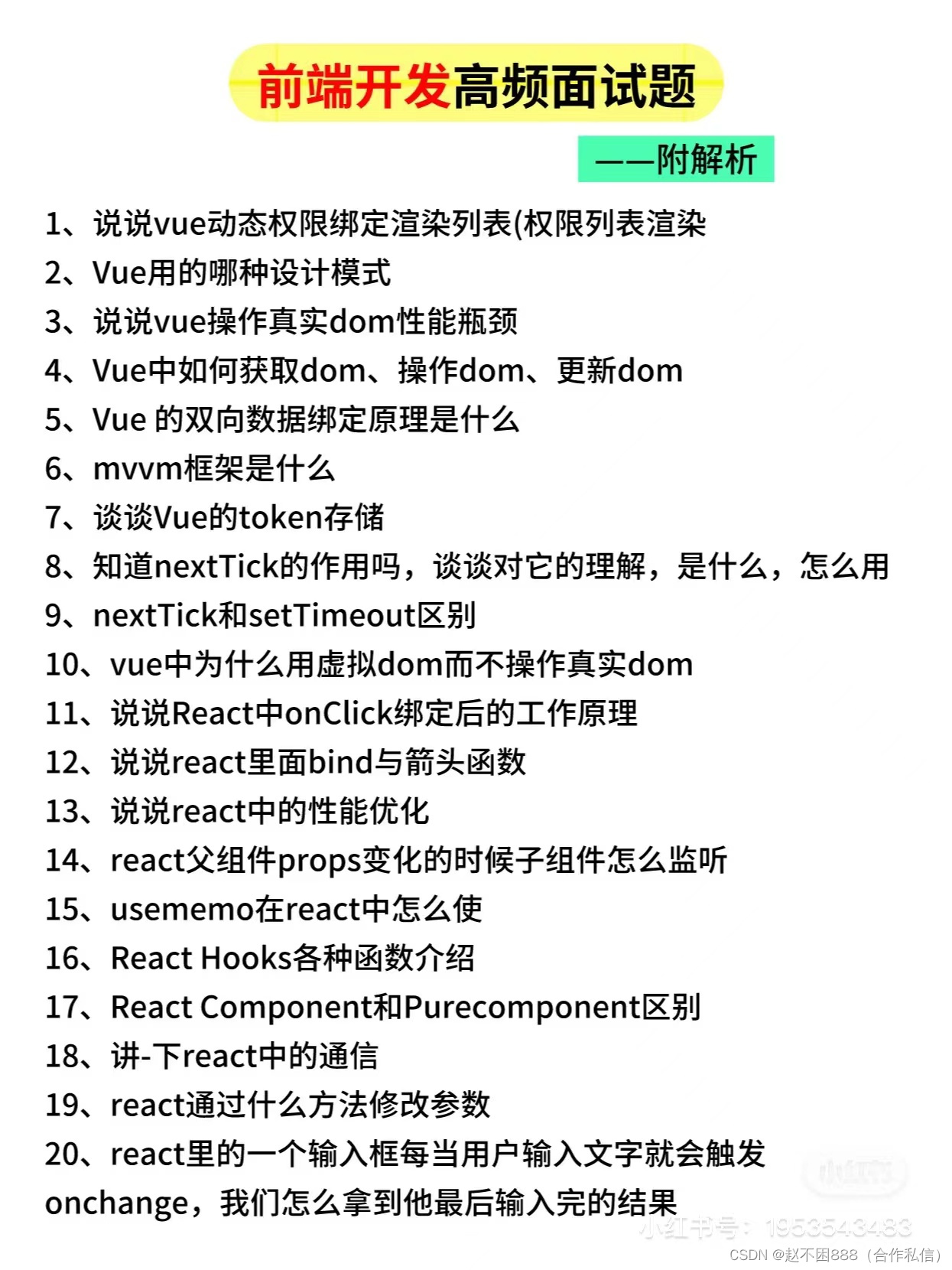
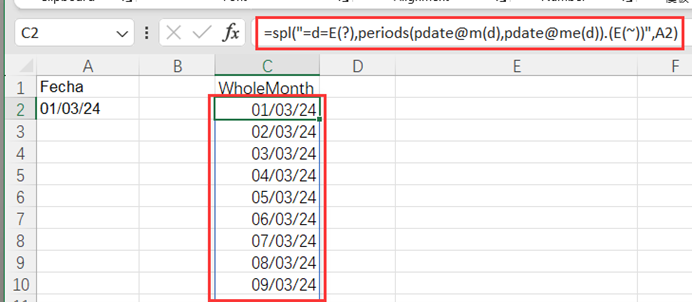


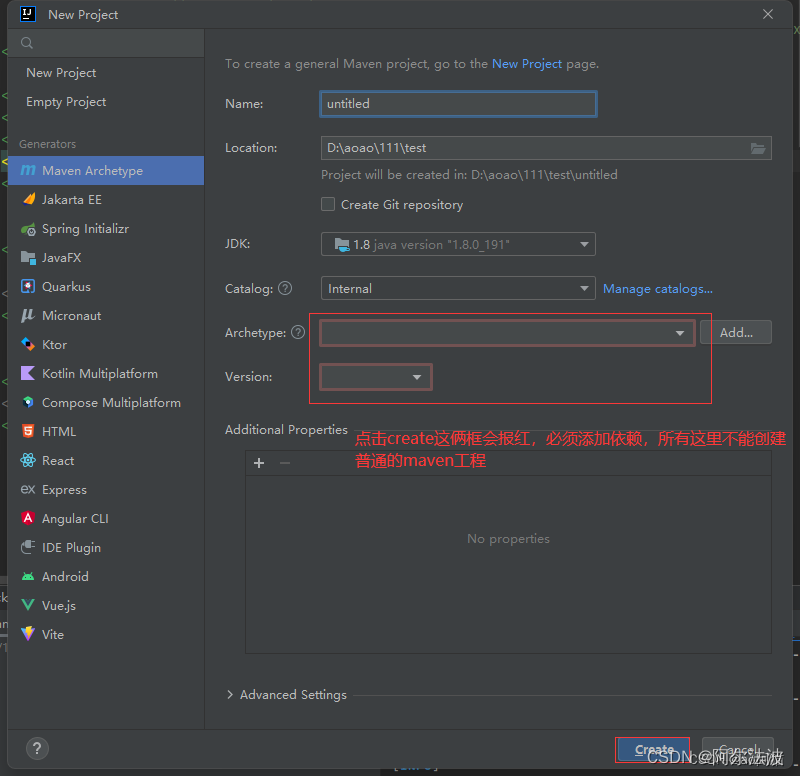
![【一百一十】【算法分析与设计】[SDOI2009] HH的项链,树状数组应用,查询区间的种类数,树状数组查询区间种类数](https://img-blog.csdnimg.cn/direct/3a0f0fc44aba40c194b18002ffacc1a6.png)


